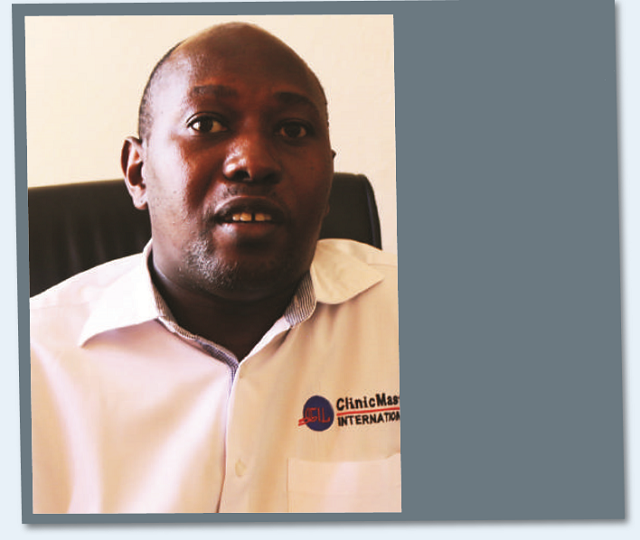
Wilson Kutegeka is the CEO of ClinicMaster International, the developers of a healthcare information management and medical billing software that automates patients’ transactions in health centres across East Africa. He spoke to The Independent’s Agnes E Nantaba about automation of patient’s health records.
What are the key elements in your management philosophy as a manager?
I believe in being exemplary, ensuring as much as possible that I do what I expect of the team. I also share information with my team to ensure that they understand where we are heading for the benefit of us all. Lastly, I am a perfectionist and thus prefer to involve the team in every decision.
What is your assessment of data management in Uganda’s health care system?
Majority of health facilities in the country still record information in files and this makes it difficult to make conclusions in the event of a study on particular case. Sometimes even those with electronic systems are still lacking in some aspects in the sense that they are either partial automated or purely manual. You can hardly find a centre that doesn’t use paper at all yet our aim is to see that all patients’ information is stored electronically to facilitate easy information sharing and reaching conclusions.
ClinicMaster is an integrated new generation healthcare information management and medical billing software. How does the system work to phase out managing health related data manually?
We expect a patient to walk into the hospital or clinic where his or her bio data is captured electronically and thereafter given a number. Once registered at the reception, other service points like the doctor should be in position to connect to and see the details automatically on his/her computer.
The doctor will make diagnostic requests on the same network as people in the laboratory are notified on who to conduct tests and feed in results into the computer which a doctor is then alerted automatically.
This enables the doctor to then enter a diagnosis and also prescribe medicine online. The patient is sent to the pharmacy to collect medicine which he or she finds fully packed while at the same time the accountant is compiling the bill. There are also some added features where a patient receives an SMS of the bill and payments.
To what extent does the healthcare information management software guarantee accuracy of patients’ medical data?
It is a far better way than having data kept and managed in files. The system is designed in such a way that different service points will check on each other unlike using manual files.
There are several clinics or medical centres that do not offer all the services highlighted in the ClinicMaster modules. How then does the software apply to them?
Modules are optional and so they can be switched on or off allowing the clinic or health centre to concentrate on using what is available at the facility. Regardless of the size of the hospital, the flow tends to work in the same manner. The only difference between small and big health centres is that doctors may be more or few but the basic cycle is the same for all health centres.
We are now working with over 90 hospitals and clinics in Uganda, Kenya and Sothern Sudan.
Two years ago, you partnered with One Solutions, a cloud computing hosting company to come up with a health information sharing solution they called ClinicMaster one. How does the solution work?
The intention of the partnership was to bring together different strengths in terms of expertise. While we had the health care information management and medical billing system, One Solution had the cloud environment infrastructure which allows to host an application on the cloud.
Regrettably, the partnership didn’t work out as planned because cloud computing is a new phenomenon in the market and the clients whom we proposed to had issues with security.
Instead, they preferred to have data hosted at their hospital premises than being hosted at One Solution. The other concern was internet. One Solution was dependent on internet yet a couple of facilities were not willing to invest in internet.
What are your greatest challenges?
There is a high level of investment at the client’s side in terms of computers, servers, and other infrastructure. This renders our work limited to health centres with such facilities.
It is the same reason that One Solution had come in handy to take away that cost from the client such that the information is hosted at One Solution.
How do you ensure privacy and security of patients’ data?
Currently, we set security at the hospital or client premises and the system is role-based on password, fingerprint, and user name. Even when one logs into the system, the access is limited to one role. For instance, a casher can only access bills of the patient. Each user therefore has a role and access is only to the relevant sections.
Where do you see ClinicMaster in Uganda in the next few years?
We are still a one product based company that we still believe in. However, our aim is to continue working on the same product, make it better with more features and install in it more health centres countrywide and in the region.
****
editor@independent.co.ug
 The Independent Uganda: You get the Truth we Pay the Price
The Independent Uganda: You get the Truth we Pay the Price


